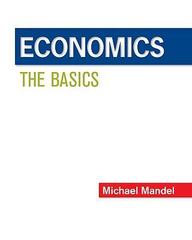Question
The Cambodia government is considering to further develop the bicycle manufacturing industry to support its growing domestic market with the given functions Domestic Supply: Q
The Cambodia government is considering to further develop the bicycle manufacturing industry to support its growing domestic market with the given functions
Domestic Supply: Q = 2P
Domestic Demand: Q = 800 - 2P
where P and Q refers to the quantity and price of bicycles respectively
In addition, the cost of bicycle components is $100 per set and all fully imported from China.
At free trade position
Cambodia imports bicycles from China, at a competitive world price of$150 per set. Her domestic firms continue to import bicycle components for the domestic production at $100 per set.
[Hint: Derive the import function using Domestic demand less domestic supply ]
Proposal of trade protection
Proposal 1 :
A quota of 40 sets of bicycles from China and no tax on imported bicycle components
Proposal 2 :
A 20% tariff on imported bicycles to boost local production with no tax on imported bicycle components
Proposal 3:
A 20% tariffon imported bicycles and a 20 % tariff on imported components for bicycles
Q1. Refer to the given scenerio and as Cambodia moves from no trade to free trade,
Select one:
a. The value added remains unchanged at $100
b. The value added decrease from $100 to $50
c. The value added changed from $200 to $150
d. The value added remains unchanged at $50
Q2:
Based on the given case study, considering the level of Effective rate of protection (ERP) in Proposal 2 with proposal 3, we can deduce
Select one:
a.The ERP of proposal 2 is 60% and higher than the NRP
b.The level of ERP is proposal 3 is 40% lower than that of proposal 2
c.The ERP and NRP of proposal 3 is the same
d.All of the given options
Q3:
Refer to to the given case study , the adoption of proposal 3 in Cambodia will lead to
Select one:
a.Zero imports of bicycles since both input and output is taxed at the same rate
b.Import level of bicycles to be the same as the quota at 40 sets
c.The NRP and ERP in Cambodia to be the same rate at 20%
d.The ERP in Cambodia to be at 0%
Q4:
Based on the given case study, which proposal suggested will lead to the biggest price distortion of bicycles in Cambodia?
a. Proposal 1
b. Proposal 2 and 3
c. Proposal 3
d. Proposal 1 and 3
Q5:
Based on the given case study, which proposal will result in the largest fall in imports of bicycles in Cambodia?
a. Proposal 1 (quota of 40)
b. Proposal 2 (single tariff of 20%)
c. Proposal 2 and 3
d. Proposal 3 (Tariff of 20% on both input and output)
Step by Step Solution
There are 3 Steps involved in it
Step: 1

Get Instant Access to Expert-Tailored Solutions
See step-by-step solutions with expert insights and AI powered tools for academic success
Step: 2

Step: 3

Ace Your Homework with AI
Get the answers you need in no time with our AI-driven, step-by-step assistance
Get Started


